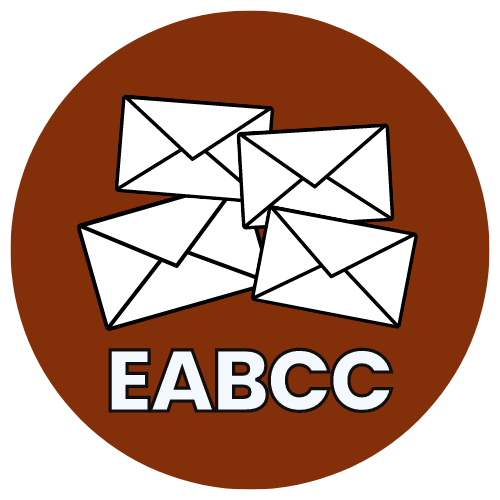The University Library has announced the institutions recommended for direct funding through the Email Archives: Building Capacity and Community (EA:BCC) re-grant program. In its first round, the EA:BCC awarded grant funding to five institutions deeply involved in innovative email archiving activity: Harvard University; University of Albany, SUNY; Council of State Archivists, Inc.; Columbia University; and the University of Chicago Library.
Nearly $400,000 was distributed amongst the awardees to illustrate and build capacity for a wide range of archival institutions to process, preserve, and provide access to email using community-supported tools. In addition, the awardees represent the diverse nature of institutions contributing to the advancement of current email archiving practices. The combined effort and outcomes of these projects will make significant progress in the adoption, productivity, and efficacy of email archiving. Included below is a brief description of the five institutions’ programs recommended for funding.
Integrating Preservation Functionality into ePADD, Harvard University ($100,000.00)
Harvard University will integrate long-term email preservation functionality into ePADD, an open source email archiving software program which already supports archival appraisal, processing, discovery, and delivery. Harvard and its project partners, the University of Manchester and Stanford University, will enhance ePADD’s functionality to provide a tool that more comprehensively and robustly supports the email archiving lifecycle. Supported features of the new product, known as ePADD+, will include local customization and extensibility to accommodate institutions that require alternative preservation packaging. In addition, local deployments at the three partner institutions will validate ePADD+’s broad applicability for diverse institutional needs and act as exemplars for similar deployment in other programmatic contexts across the email archiving community.
Mailbag: A Stable Package for Email with Multiple Masters, University of Albany, SUNY ($63,890.00)
The M.E. Grenander Department of Special Collections & Archives at the University of Albany, SUNY will create Mailbag, a functional specification based on the BagIt specification, in addition to, a software tool to create and manage Mailbags. One key feature of Mailbag is the ability to preserve multiple masters for email archives in a structured and actionable format. This will allow archivists to rapidly capture email and fix it in a stable package for later processing and access. Additionally, the project team will create a Python library and command line utility with a basic Graphic User Interface (GUI) for creating and managing Mailbags that will use web archiving technology to preserve external context and enable archivists to easily acquire email and store it in a stable manner.
CoSA PREPARE: Preparing Archives for Records in Email, Council of State Archivists, Inc. ($100,000.00)
CoSA will develop and deliver capacity-building activities for email preservation and access to state, territorial, and the District of Columbia archives. The program will focus on providing practical solutions for the collection, preservation, and accessibility of email generated by government officials and key legislators through the following activities: needs assessment; development of best practice documents; applications, tools, and protocols testing; and technical assistance and mentoring. These outcomes will foster ongoing learning, information exchange and collaboration to build the capacity for the preservation of governmental records.
Creating Email Archives from PDFs: The Covid-19 Corpus, Columbia University ($98,630.04)
Columbia University will contribute email archiving solutions on both ends of the email stewardship cycle — acquisition and preservation, on one end, and research access, on the other. The focus will be on government responses to the Covid-19 pandemic that are being released through FOIA requests made available online by journalists. Consequently, researchers are facing a number of challenges accessing these records and cannot easily determine the scope of arrangement of the collections, or find descriptions of the contents of the main components. To combat these challenges Columbia will build an open-source tool and associated library that takes email embedded in PDFs as input and generates an MBOX file as output, thereby making these records compatible with existing email archiving solutions. In addition, the project team will process a large corpus of FOIAed records on Covid-19 to enhance its value to researchers and to develop it into a new collection as part of the Freedom of Information Archive (FOIArchive), an aggregated database of government records.
Attachment Converter: Preserving the Context of Electronic Correspondence, University of Chicago Library ($40230.00)
The University of Chicago Library will build the Attachment Converter, software that will take command-line conversion tools and use them to batch-convert attachments in an email collection into recommended formats for digital preservation. The software will efficiently preserve and contextualize email attachments, which are often significant documents in a large range of proprietary and obsolete formats. This effort will increase the capacity of The Hanna Holborn Gray Special Collections Research Center of the University of Chicago Library to collect correspondence in all forms and contribute to its mission of documenting University activities and supporting teaching and learning on campus. The project team plans to collaborate with colleagues from other institutions to ensure that the Attachment Converter will accommodate a broad range of documents and archival workflows. The Attachment Converter will be made freely available to the archival community.
